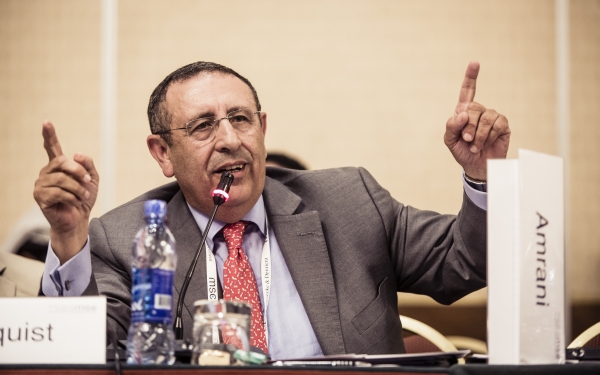
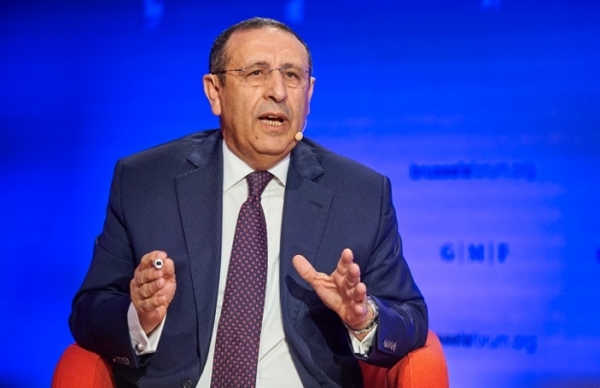
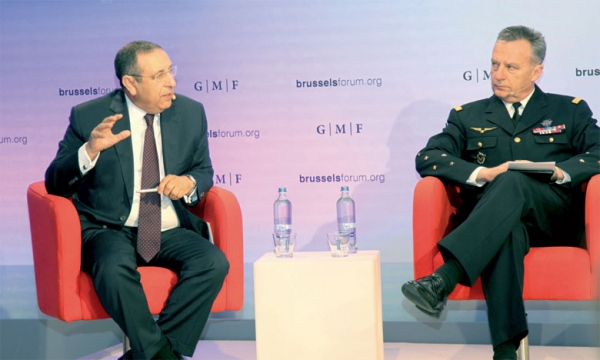
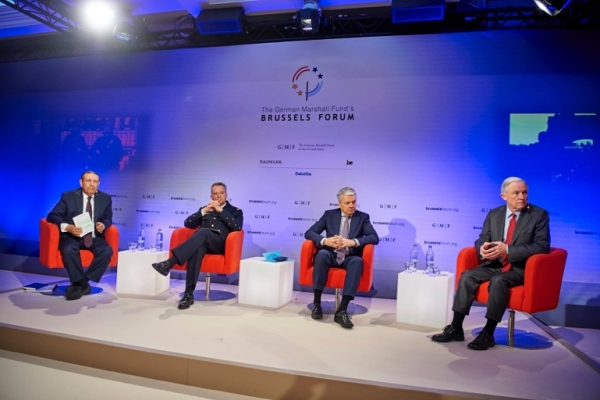
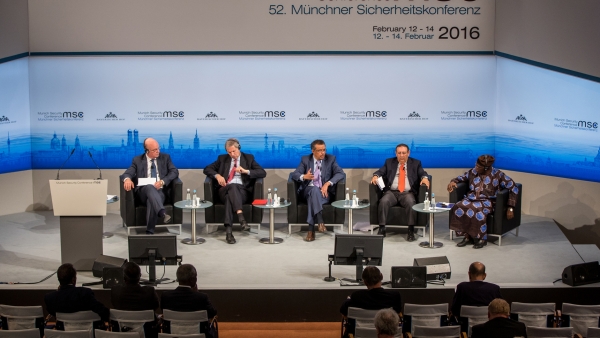
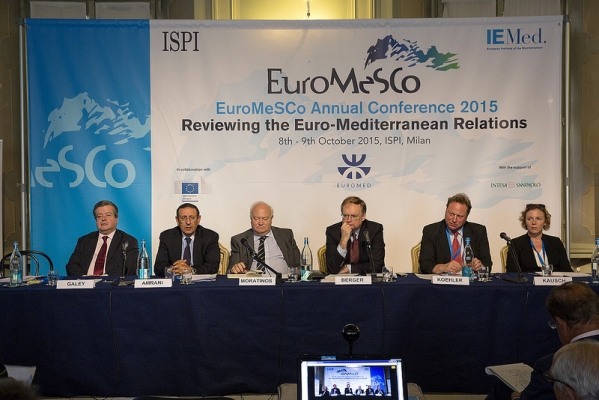
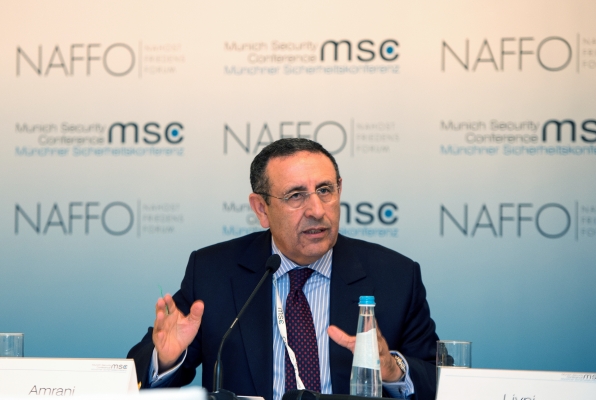
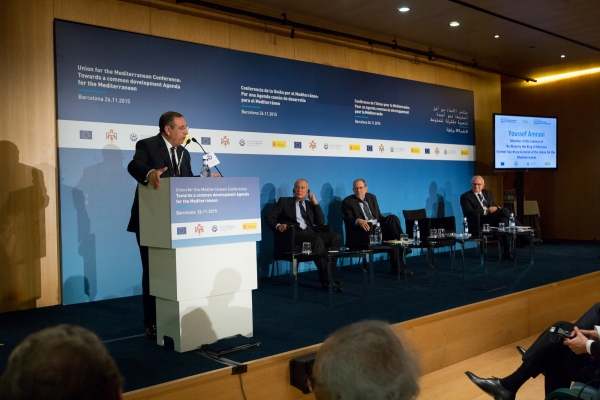
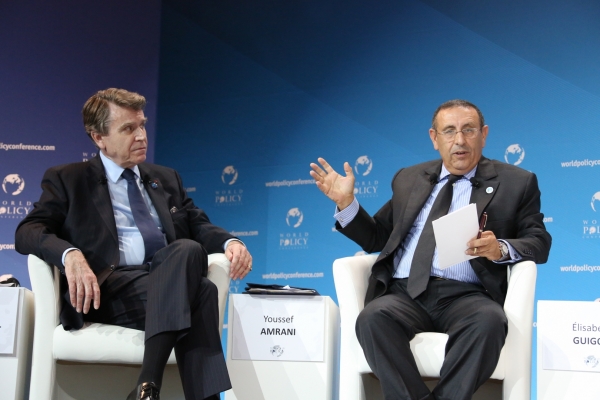

Mr. President of the General Assembly,
Mr. Secretary General,
Your Excellencies,
Ladies and Gentlemen,
Allow me at the outset to congratulate the President of the General Assembly, His Excellency Nasser Abdelaziz Al Nasser for convening this High Level Meeting on the theme of the “Role of Member States in Mediation”.The Kingdom of Morocco, as a member of the Group of Friends of Mediation, supports the judicious choice of this priority by the PGA to be the highlight of his tenure. We would like to commend Secretary General Ban Ki Moon for his relentless efforts to promote mediation as a tool to increase peace. Morocco will continue to support unconditionally the Secretary General’s efforts to advance the cause of peace worldwide.
Excellencies,
Ladies and Gentlemen,
The act of creation of the United Nations was no easy exercise for the forefathers, setting up a new architecture for peace and security was indeed a daunting challenge. The translation of the vision into structures could not go without the development of powerful concepts that would govern the behavior among States: Mediation and the Peaceful settlement of disputes became powerful instruments for conflict management and resolution. It is precisely in this context that Morocco, as an independent country in 1956 motivated its adherence to the United Nations, through the commitment to the principle of peaceful settlement of disputes as enshrined in Chapter VI of the UN Charter. Morocco enshrined this very principle in the preamble of the Constitution making of the promotion of the settlement of international disputes by peaceful means becomes a cornerstone of his Foreign Policy in such a manner that international peace and security, and justice, are not endangered.
Excellencies,
Ladies and Gentlemen,
We live in an increasingly volatile environment and fragility, where the conjunction of global threats, make it increasingly difficult for the International community to address in an integrated fashion conflicts and their root causes. It is well-known that security is indivisible, but the very concept of security needs a paradigm shift, we can no longer consider a global issue through the sole prism of its “hard security” dimension. An integrated approach is required, and the UN is the sole forum able to provide it.
The Kingdom of Morocco, as a co-sponsor of the first UN General Assembly resolution on mediation adopted on June 22, 2011, underlines the necessity to reinforce qualitatively mediation in the existing UN peace and security architecture. In order to reach that objective, there is a dire need for an “Agenda for mediation and conflict prevention”. The success of the UN has been often times related to its capacity to react to conflicts through unique tools like Peacekeeping and Peacebuilding, leaving prevention in a secondary role. We believe that in view of the record of mass atrocities, the time has come to invest in Conflict prevention.
We welcome in this regard the Secretary General’s report on Preventive diplomacy, and the Good offices deployed by his Envoys and Special Representatives to diffuse, mitigate or prevent the outbreak of violence. In 1992, Boutros Boutros Ghali issued “the Agenda for Peace” a milestone document, relevant in many ways these days. Some twenty years after its issuance, The Kingdom of Morocco believes it is high time for a “New Agenda on Mediation and Conflict Prevention”.
Excellencies,
Ladies and Gentlemen,
Morocco, since its independence has played a key mediating role in Africa, the Middle East and the Balkans. This role stems from the Kingdom’s firm belief in the principle of collective security and in the centrality of the United Nations in the promotion of the peaceful settlement of disputes. In its experience as a peace broker in a conflict-prone area, Morocco knows only too well that the key to successful mediations are three qualities: discretion, humility and impartiality. These features remain at the core of the requirements of mediators. Providing effective mediation assistance to parties in conflict is often a challenging task. We would like to praise Under Secretary General Lynn Pascoe for his leadership role in restructuring the Department of Political Affairs and creating a Mediation Support Unit that counts in its ranks rapidly deployable capacities for the design of peace processes while guaranteeing ownership by the parties in conflict. This is an important development that needs to be highlighted. In this regard, there is a need for the building up of a cadre of staff able to backstop senior envoys and to professionalize the operational support to UN mediators.
Member states are central for the development and promotion of mediation in their regions. The role of the kin state in mediation processes has often been underestimated. This needs to be examined with great attention. We need to involve the neighbouring states in the quest for sustainable peace.
Excellencies,
Ladies and Gentlemen,
Turning to the Future, our collective efforts should aim to develop the next generation of UN mediators. The accent needs to be put on the advent of a culture of conflict prevention, for that objective there is no miracle recipe, we need to redouble our efforts in providing the UN with an early warning system to predict crisis emergence and prevent situations from deteriorating. All too often the risk of relapse into conflict is high, therefore the best guarantee for mediations to be sustainably successful is the promotion of national capacity in conflict prevention and resolution. This necessitates a greater involvement of national academia and civil society. National mechanisms and institutions are the ultimate prevention actors from conflict.
Allow me to conclude by announcing that Morocco and Spain, two Mediterranean countries with a shared history, two neighbors that share the objective of a peaceful Mediterranean region have partnered to launch a joint initiative for the promotion of Mediation at the regional, national and local levels in the Mediterranean. This region deserves like other regions to become an area for peace and prosperity. Conflict is never a fatality, it is our
collective duty to prevent it or address its root causes. That was the vision of the forefathers of the UN and the lesson that we need to draw some 67 years after the creation of our organization.